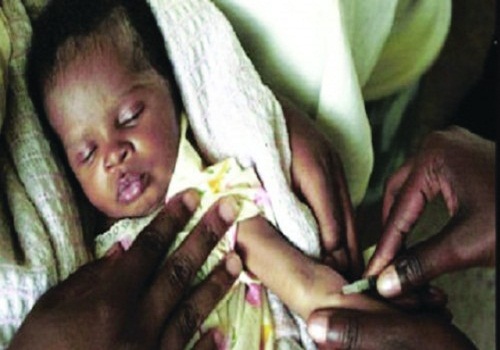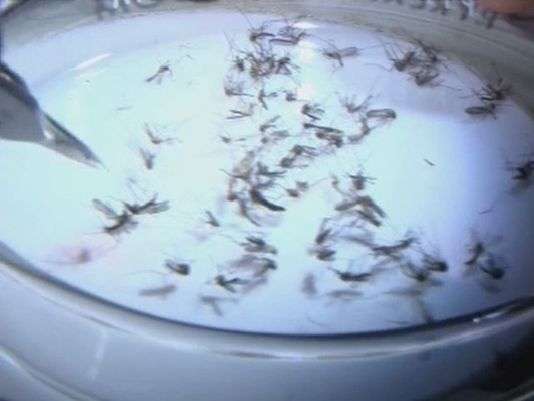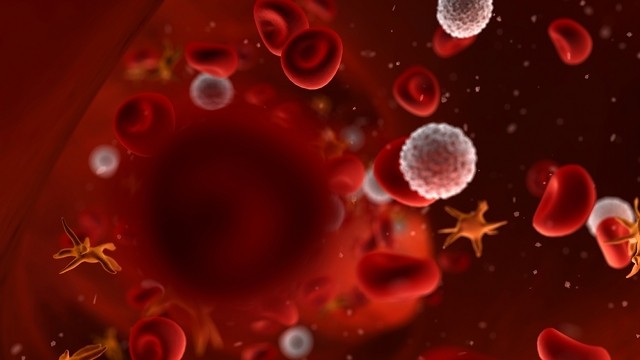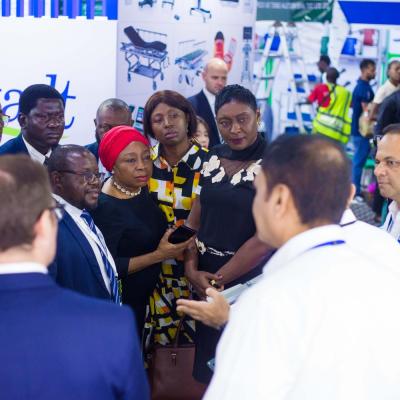Frontpage News (3259)
 There is panic among some students Obafemi Awolowo University (OAU), Ile Ife on Sunday as malaria fever hit some of their colleagues.
There is panic among some students Obafemi Awolowo University (OAU), Ile Ife on Sunday as malaria fever hit some of their colleagues.
Reports of strange virus went viral on the social media on Sunday but our correspondent, who visited the OAU HealthCentre learnt that although the number of students who had malaria had increased, the situation was not as alarming as it was painted. Our correspondent observed that some sick students brought to the health facility were treated and discharged.
Some of the students were seen vomiting but the situation was immediately brought under control as doctors and other medical personnel on duty attended to them.
 Thirty-nine new doctors were inducted by the Lagos State Government at the weekend. Daily Trust reports that the new doctors have undergone series of training spanning years at the Lagos State College of Medicine (LASCOM) within the complex of Lagos State University Teaching Hospital (LASUTH), Ikeja.
Thirty-nine new doctors were inducted by the Lagos State Government at the weekend. Daily Trust reports that the new doctors have undergone series of training spanning years at the Lagos State College of Medicine (LASCOM) within the complex of Lagos State University Teaching Hospital (LASUTH), Ikeja. Kwara, Indian Hospital to Partner in Provision of Health Care Services -
 The Kwara State Commissioner for Health, Alhaji Suleiman Alege, on Monday said that the state would partner Continental Hospital, India, to provide health care services to residents of Kwara at a subsidised rate.
The Kwara State Commissioner for Health, Alhaji Suleiman Alege, on Monday said that the state would partner Continental Hospital, India, to provide health care services to residents of Kwara at a subsidised rate. It is a well-known fact that the private sector in Sub-Saharan Africa, nay Nigeria, is responsible for over 50% of healthcare provision.
It is a well-known fact that the private sector in Sub-Saharan Africa, nay Nigeria, is responsible for over 50% of healthcare provision.
This fact testifies to the importance that the private sector in health has garnered due to its contribution to nurturing healthy lives.
This importance is against the backdrop of lower government involvement in the provision and delivery of healthcare coupled with increasingly decreasing revenue accrual to the sector due to low government earnings from oil.
 New report on Africa’s immunisation coverage released by the World health Organisation (WHO) at the just concluded first-ever Ministerial Conference on Immunization in Africa held last week in Addis Ababa, Ethiopia has ranked Nigeria among countries with unimpressive record in routine immunisation coverage.
New report on Africa’s immunisation coverage released by the World health Organisation (WHO) at the just concluded first-ever Ministerial Conference on Immunization in Africa held last week in Addis Ababa, Ethiopia has ranked Nigeria among countries with unimpressive record in routine immunisation coverage. Lagos State Commissioner for Health, Dr. Jide Idris has restated the State government’s commitment to support the “Partnership for Advocacy in Child and Family Health (PACFaH)”
Lagos State Commissioner for Health, Dr. Jide Idris has restated the State government’s commitment to support the “Partnership for Advocacy in Child and Family Health (PACFaH)” As a show of solidarity, medical doctors in South West have threatened to go on strike within two weeks, if the Osun State government fails to address the plight of their colleagues.
As a show of solidarity, medical doctors in South West have threatened to go on strike within two weeks, if the Osun State government fails to address the plight of their colleagues.  Research by scientists in Brazil have indicated that a mosquito more common than the one primarily known to transmit Zikainfections may possibly be able to carry the virus.
Research by scientists in Brazil have indicated that a mosquito more common than the one primarily known to transmit Zikainfections may possibly be able to carry the virus.
According to the research, this is a development that can further complicate efforts to limit its spread. The scientists in Brazil had announced on Wednesday that they were able to infect another mosquito species, Culex quinquefasciatus, with the Zika virus in a laboratory.
The research was conducted by scientists at the government-funded Oswaldo Cruz Foundation in the northeastern city of Recife as part of an on-going trial. The trial involved researchers injecting 200 of the Culex quinquefasciatus mosquitoes with rabbit blood infected by Zika.
 Scientists believe they have discovered a way to “steer” the immune system to kill cancers. They have developed a method, reported in Science journal, for finding unique markings within a tumour – its “Achilles heel” – that the immune system can target.
Scientists believe they have discovered a way to “steer” the immune system to kill cancers. They have developed a method, reported in Science journal, for finding unique markings within a tumour – its “Achilles heel” – that the immune system can target.
But the approach would be expensive, need designing for each individual and has not yet been tried in patients. Experts said the idea made sense but could be more complicated in reality.
However, the researchers believe their discovery could form the backbone of new treatments and hope to test it in patients within two years. People have tried to steer the immune system to kill tumours before, but cancer vaccines have largely flopped.
 The leadership crisis rocking the Federal Medical Centre, Owerri, Imo State, has been resolved –giving way to the resumption of clinical services in the facility generally believed to be one of the best medical centres in the country.
The leadership crisis rocking the Federal Medical Centre, Owerri, Imo State, has been resolved –giving way to the resumption of clinical services in the facility generally believed to be one of the best medical centres in the country.
The resumption of work in the hospital followed the federal government’s directive to the embattled Chief Medical Director (CMD), of the centre, Dr. Mrs. Angela Uwakwem, to proceed on compulsory leave, and the appointment of Prof. Ndubuisi Ekeh, as the acting CMD of the Centre.
Indeed, the leadership crisis was put to rest following series of deliberations between federal government officials and stakeholders in the health sector, as well the intervention of the House of Representatives Committee on Health Services, chaired by Deacon Chike Okafor.
More...
 Delta State Governor Ifeanyi Okowa, yesterday advocated for an end to medical tourism in the country, arguing that there are state-of-the-art medical facilities in the country which the people must patronize.
Delta State Governor Ifeanyi Okowa, yesterday advocated for an end to medical tourism in the country, arguing that there are state-of-the-art medical facilities in the country which the people must patronize.  The concept of healthcare has taken on new dimensions due to its increasing role and influence in ensuring optimal health outcomes on one hand, and its new status as a viable sub-sector of a nation's economy. Driving this increasing role is the private health sector, who provide over 50% of health services in sub-Saharan Africa and drives over 95% of total health expenditure in Nigeria through out-of-pocket payments.
The concept of healthcare has taken on new dimensions due to its increasing role and influence in ensuring optimal health outcomes on one hand, and its new status as a viable sub-sector of a nation's economy. Driving this increasing role is the private health sector, who provide over 50% of health services in sub-Saharan Africa and drives over 95% of total health expenditure in Nigeria through out-of-pocket payments.
 I felt nice seating in the Nelson Mandela Hall of the African Union Headquarters on Thursday 25th February 2016 when the African Ministers of Health were reviewing, negotiating and finalizing the ministerial declaration on immunization.
I felt nice seating in the Nelson Mandela Hall of the African Union Headquarters on Thursday 25th February 2016 when the African Ministers of Health were reviewing, negotiating and finalizing the ministerial declaration on immunization.  When the World Health Organization (WHO) declared Nigeria polio-free, it was celebrated after fighting the battle since 1976. This battle also forced the federal government to set up the National Programme on Immunization (NPI) in the same year. Though the effort failed woefully but in 1979 it was reactivated, leading to the emergence of the Expanded Programme on Immunisation (EPI).
When the World Health Organization (WHO) declared Nigeria polio-free, it was celebrated after fighting the battle since 1976. This battle also forced the federal government to set up the National Programme on Immunization (NPI) in the same year. Though the effort failed woefully but in 1979 it was reactivated, leading to the emergence of the Expanded Programme on Immunisation (EPI).
The same can be done to other Vaccine Preventable Diseases (VPD), ODIRI UCHENUNU writes. Measles is a highly contagious viral disease, which affects mostly children. It is transmitted via droplets from the nose, mouth or throat of infected persons.
Initial symptoms, which usually appear 10 to 12 days after infection, include high fever, runny nose, bloodshot eyes, and tiny white spots on the inside of the mouth. Several days later, a rash develops, starting on the face and upper neck and gradually spreading downwards.






